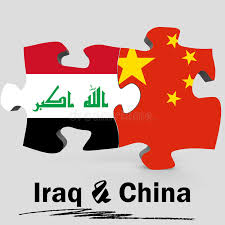Iraq is planning to pay for private-sector imports from China in yuan, injecting foreign currency into the financial system to help ease pressure on the dinar.
The central bank will provide yuan to local lenders for dealings with Chinese counterparts, according to a statement published Wednesday. It will also supply the Chinese currency to final beneficiaries directly via some of the central bank’s own accounts.
OPEC’s second-biggest producer is joining the Middle East’s leading economies, such as
Saudi Arabia and the United Arab Emirates, in exploring non-oil trade ties using currencies other than the dollar. The central bank said in the statement that it later aims to facilitate money transfers to the US and Europe in the same manner as with China.
The measures won’t extend to Iraq’s oil trade, said Mudher Saleh, the prime minister’s financial adviser. “This is covering the imports of the private sector,” he said.
China, which has been pushing the yuan’s use in transactions with major energy and commodity exporters, was Iraq’s main source of imports after Turkey last year, according to data compiled by Bloomberg.
Steadying the Currency
In Iraq, the steps mark the latest effort by authorities to stabilize the national currency after revaluing it earlier this month to 1,300 per dollar from 1,460. The move helped shore up the dinar’s parallel exchange rate but without narrowing the spread completely.
On Wednesday, the dollar was available on the unofficial market at about 1,530 dinars, from a peak around 1,700 earlier this year.
Iraq has experienced dollar shortages after coming under pressure from the US to limit the flow of money into neighboring Iran, with the New York Federal Reserve last November imposing tighter controls on dollar transactions by Iraqi commercial banks.
As a result, transfer approvals slowed and ultimately led traders to buy dollars from exchange bureaus. Iraq’s foreign currency reserve of $103 billion is held at the US Federal Reserve.
Source: Bloomberg, 22.2.2023








Comment here